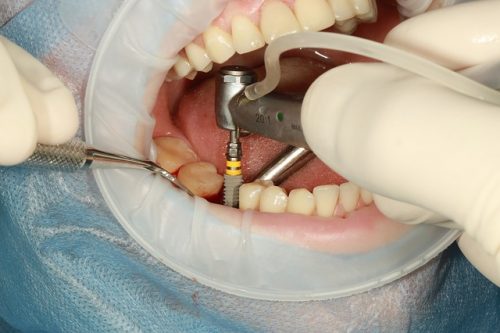9 Things You Should Know After Receiving Dental Implants
Dental implants are surgical components that work with crowns and bridges to support your dental hygiene, comfort and appearance. While there are a few different ways to get dental implants and the exact process will likely depend on your dentist and their methods, there are a few universal things to know about receiving implants. Whether you’ve already received your implants or you’re considering the procedure now, it’s important to know that it’s a common and safe procedure with plenty of benefits.
Any oral procedure can seem a bit scary at first, especially one that might be surgical. However, getting an implant can do so much for your quality of life and for the appearance of your smile. Whether you’re experiencing pain or annoyance at your current tooth situation, dental implants can certainly help. If you’re considering the procedure, here are just a few things you should know for after you get dental implants.
-
It Is a Surgery
While it definitely isn’t an intense or invasive surgery, dental implants do require a surgical procedure on the mouth. Usually, they won’t put you completely under for a procedure like this one, but some amount of anesthesia will be used to ensure that the pain isn’t too great. And just like any surgery, dental implants require proper aftercare.
-
Insurance May Not Cover the Cost
Unfortunately, insurance doesn’t usually cover the cost of dental implants. Under specific circumstances, they may be covered under your medical insurance, depending on the exact cause of the original tooth loss. However, it’s impossible to say for sure until you talk with your insurance company about it. But it’s always a good idea to budget for it, either way.
-
Eat Soft Foods Following the Surgery
This one might be a given, but soft foods will be your friend after your surgery. You do still need to eat, after all, even if you’re healing. Foods like yogurt, ice cream, broth, smoothies, apple sauce, mashed potatoes and oatmeal can all be great choices to get you the nutrition you need while you heal.
-
Water Flossers Will Be Your Best Friend
Once you’re fully healed up, one of the changes you may experience is a newfound difficulty with flossing. While many people choose to use floss threaders, you may find better luck with a water flosser or water pick, which can get into all the nooks and crannies that need cleaning. However, you won’t want to stick anything in there until you’re fully healed.
-
Going Without Can Worsen Your Problems
While it can be tempting to change it and go without, problems that require an implant tend not to go away on their own. In fact, they tend to worsen if left untreated.
-
Your Other Option Is a Root Canal
Yes, the dreaded root canal. While it’s a buzzword, it’s also your other option when it comes to treating deeper tooth damage. Usually, root canals treat most of the same problems that implants do. While root canals usually allow you to keep the original tooth rather than replacing it, implants can improve the function and aesthetic of your tooth. Additionally, some teeth are too badly damaged to keep, requiring an implant anyway.
-
It Hurts Less Than Tooth Extraction
One thing that many patients spend precious time worrying about is the pain involved with getting dental implants. However, many patients actually report that the implant procedure hurts less than the tooth extraction. In addition to the anesthetic that the dentist will likely administer for your procedure, you may find yourself surprised at the tolerable pain level of getting an implant.
-
Make Sure You Brush Every Day
No matter your reason for getting a dental implant, it’s important going forward that you take the utmost care of your dental hygiene from now on. This means flossing and brushing your teeth every single day, keeping an eye on how you feel and noticing any changes that arise.
-
Don’t Miss Your Regular Cleanings and Follow-Ups
As a part of taking care of your teeth to the best of your ability, you should also make sure that you don’t miss any follow-ups and cleanings. Your dentist will likely want to see you after the procedure to check on your healing, so it’s important to show up. Additionally, make sure you stay on top of your dental visits every six months.
What to Know About Dental Implants
Getting an implant is a personal decision that you can make for your health, and it can improve your quality of life and dental hygiene. When you choose to get an implant, one of the best things you can do for yourself is to come in prepared. By knowing what foods to eat, what to expect and how to care for them afterward, you’re well on your way to dental wellness. Are you getting an implant anytime soon?




